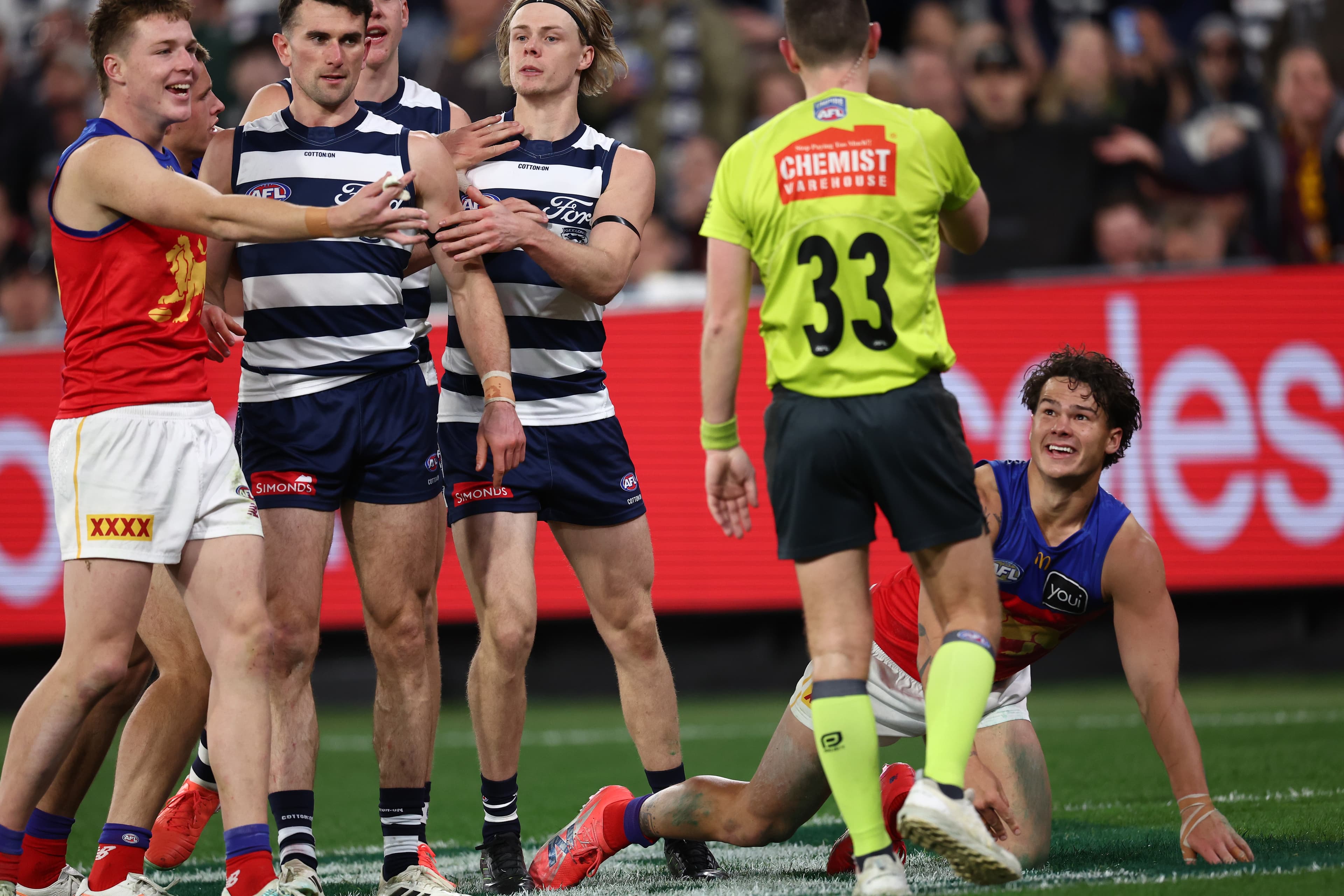📻 How to tune into Sport Nation
AFL confirms Rayner free kick decision was incorrect
SEN • September 6th, 2025 3:37 pm

The AFL have confirmed that the first of the two controversial free kicks given to Brisbane’s Cam Rayner was incorrect.
During the second quarter of Geelong’s 38-point win against Brisbane, Rayner was awarded two free kicks that would eventuate into goals.
The first free kick was awarded when Mark O’Connor bumped Rayner to the ground despite being more than 100 metres away from the ball.
Following the Brisbane star kicking the first goal, Zac Guthrie would then knock Rayner down right in front of the umpire, who proceeded to award another goal.
That decision led to plenty of outrage online about the goals, which saw the Cats’ lead reduced to 15 points.
And on Saturday, the AFL would confirm with Sam Edmund that the decision to award the first free kick was the incorrect one.
“So, I have spoken to the AFL this morning,” Edmund explained on SEN’s Crunch Time.
“They have conceded the first free kick was not there, now that was Mark O’Connor on Cam Rayner.
“That was just a simple case of the umpire being drawn into something that wasn’t there from a free-kick perspective.
“They are saying the second one was correctly paid. They say that (Zac) Guthrie’s bump on Rayner from behind did constitute a free kick.
“That was in the ensuing coming together. But certainly, the latter doesn’t happen if the former isn’t intervened upon by the officials.
“So, make of that what you will.”
This would spark a discussion amongst the Crunch Time team about umpiring with Gerard Whateley noting that this moment could be a ‘real flashpoint’ in terms of what the AFL wants its umpiring to be.
“We’ve been lurching towards this all year,” Whateley noted.
“And this is where the responsibility ultimately sits with Greg Swann and the off-season.
“There’s the question of what can be justified?
“But the overriding principle has to be what does the game want from its officiating? And this is not a singular moment.
“But it does bring it to a real flashpoint, is too much of the operation of the umpire’s department, I think, has been, ‘What can we justify? What can we stand behind?’
“And they mark themselves. So, their statistics are worth nothing. They’re not audited from the outside; they make the rules, they interpret them, and they pass judgment on them.
“So, there’s no external oversight on that, and that’s the wrong way to approach it.”

